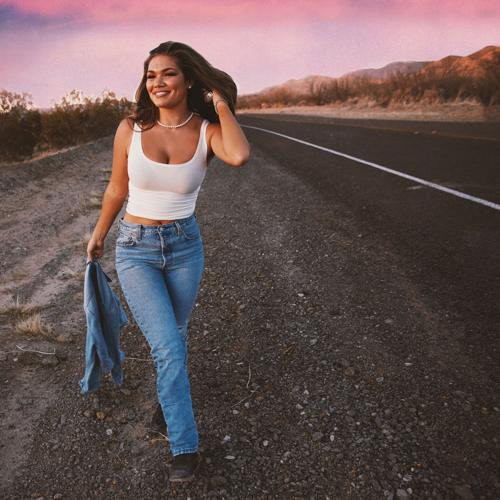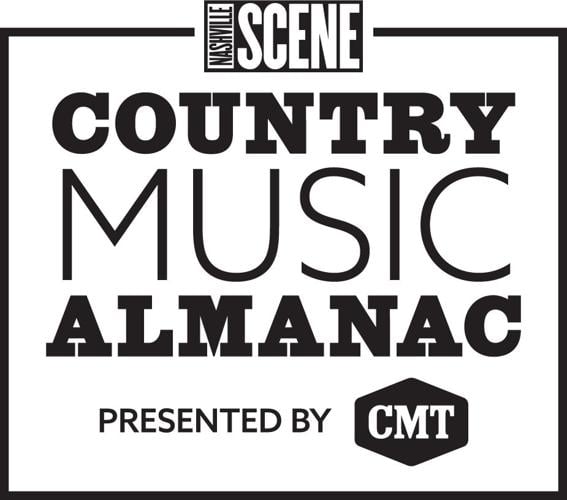Born to a Mexican American mother and a Caucasian father, Southland, Texas, native Abby Anderson moved to Nashville in 2015 at the tender age of 17, with just a guitar and a lot to sing about. Anderson grew up in a big family that loves music; the second-oldest of seven children, she describes an environment with “lots of music, lots of women, lots of noise [and] inspiration around every corner.” She began playing classical piano at age 5 and toured around Texas, but gravitated toward musicians with powerful voices, fantastic stage presence and heartfelt songs, from Merle Haggard and Ray Charles to Whitney Houston and Elvis Presley.
By 2017, she had landed a deal with Black River Entertainment, was recognized by Pandora as a Country Artist to Watch in 2018 and was featured on CMT Listen Up’s 18 for 2018 list. In 2018, Anderson had a big year: Her single “Make Him Wait” was getting millions of streams on Spotify — its current tally is more than 23 million — and she released her debut five-song EP I’m Good. By the summer of 2020, Anderson found herself feeling boxed-in and stuck with the impossible task of creating music for maximum airplay rather than for herself, leading her to leave the label.
In 2022, she released her Sugar Spice EP independently. Last year, she opened several dates for Stevie Nicks and toured extensively with Hunter Hayes. Her EP First to Hit the Road, released in September, is in many ways a coming-of-age story of a young woman who finally found her feet. It feels as fearless as the teenager who believed in herself enough to strike out on her own. And it’s connecting with fans — lead single “Heart on Fire in Mexico,” which tells the story of her mother’s family in heartrending detail, quickly went viral, with hundreds of thousands of TikTok likes and more than a million streams on YouTube. Anderson recently signed to Walk Off Entertainment/Virgin Records, and she’s about to hit the road again. The Scene spoke with Anderson about her evolution as a songwriter, her musical inspirations and celebrating her Mexican heritage as a country singer.
When did you start writing music?
I wrote my very first song when I was 9, on the guitar. After that, I told my piano teacher, “I don’t want to read piano music, I want to write my own.” And he told me that for every classical piano song I memorized — like classical Beethoven, whatever — he was gonna help me write my own stuff and teach me the theory behind actually composing music. So I started composing little hymns and little jingles, and a lot of it was rearranging the hymns I grew up singing. I would rearrange those and sing my own little rendition in church. And that got my musical theory background built up.
How did you make the huge decision to move to Nashville, and what was it like being on your own at such a young age?
I did not graduate high school. I made the decision to homeschool at 15. I realized from a young age that this was what I wanted to do. I told my dad — I was like 15 — “I don’t want to go to college, I want to do music. This is what I want to do. I want to write, I want to sing.” I was so dramatic, I was like, “I’m an artist. I want to be seen and heard.” [Laughs]
And he told me I could do whatever I wanted to. I don’t think he thought I would take that to heart, but I moved out to Nashville when I was 17. Just kinda decided, “It’s time to go.” My mom drove me out; we drove down one day, dropped me off at a family friend’s place, said goodbye the next morning, and then I was on my own. I was scared as hell.
Sometimes I look at my little sisters now — ’cause they’re 15, 16, 17 — and there’s no way I would let my little sisters move to a city alone. Very thankful my parents had the faith in me to do it, but it was pretty crazy, looking back now.

Abby Anderson
So much musical growth is evident on First to Hit the Road. Some big life events happened — COVID-19, leaving your old label, getting married. What are some ways your music reflects those changes?
I feel like I’m that 17-year-old fearless girl again, who moved to Nashville and just thought she was the shit. But she just believed in herself, and she was fearless, and she was making music that people didn’t know what to do with. I think for a minute there, I got scared. And I started listening to people around me, and everybody’s doing their best — everybody’s just trying to keep her job and do their job, you know. [But] I noticed it started to reflect in my music; it didn’t feel fearless anymore. And it didn’t feel like anything I cared to say or wanted to, I was just trying to write what I thought would get a lot of streams or get radio play. And that’s a pretty dangerous game to play.
The best songwriting translates individual experiences into universal emotions. Two of the songs that really stuck with me were “The Reason I Stay” and “Heart on Fire in Mexico.” Tell me more about the inspiration for these songs.
“The Reason I Stay” is actually about someone in my life that I love so much. But it’s someone who I realized, like, I can’t be there for them in the way that they want me to be. I saw so many other people go through the same thing, trying to love someone who struggles with mental illness in a really, really tough, unhealthy way. And I think anybody who has someone like that in their family or in their friend group understands how painful it is. You protecting your peace isn’t saying you don’t love them, it’s saying, “I love you so much that I’m telling you, I can’t do this anymore.” … The reason that we hold onto anything that hurts us — that we know we should quit.
“Heart on Fire in Mexico” tells the story of my mom, who was born in El Paso, and her family is from Juarez. I asked different people in my family about this story. And in the stories that match up, Pee-Paw [her mother’s father] gets Yolanda [her mother’s mother] — who was working at a bar in Juarez at the time — pregnant unknowingly, and goes back to Texas. My mom grows up not knowing her father for the first decade of her life, and then makes it to Texas, finds him, and finds this whole new family she never knew she had. I was just thinking about the tenacity that a 10-year-old little girl could have to travel all the way across Texas.
Country music is very popular in the Mexican American community as well as in Mexico and parts of South America. We’re seeing the country music industry — which is still extremely white and conservative — trying to capitalize on it. What role has your Latino heritage played in your music? Have you ever felt any pressure to downplay it?
Honestly, until “Heart on Fire in Mexico,” I never really thought about it. I’ve never thought about it in the sense of consciously downplaying anything. I grew up in Southlake, my mom was Mexican, we hung out with a lot of Mexican women, we ate the food, but I never spoke the language. Culturally, it was just what I was around a lot. However, I do feel like this year it’s been fun to go back to that and start wearing [Tejano fashion] again, and owning it.

Taking a look at the state of country music now and in the year ahead with Brothers Osborne, Black Opry, Abby Anderson and more





